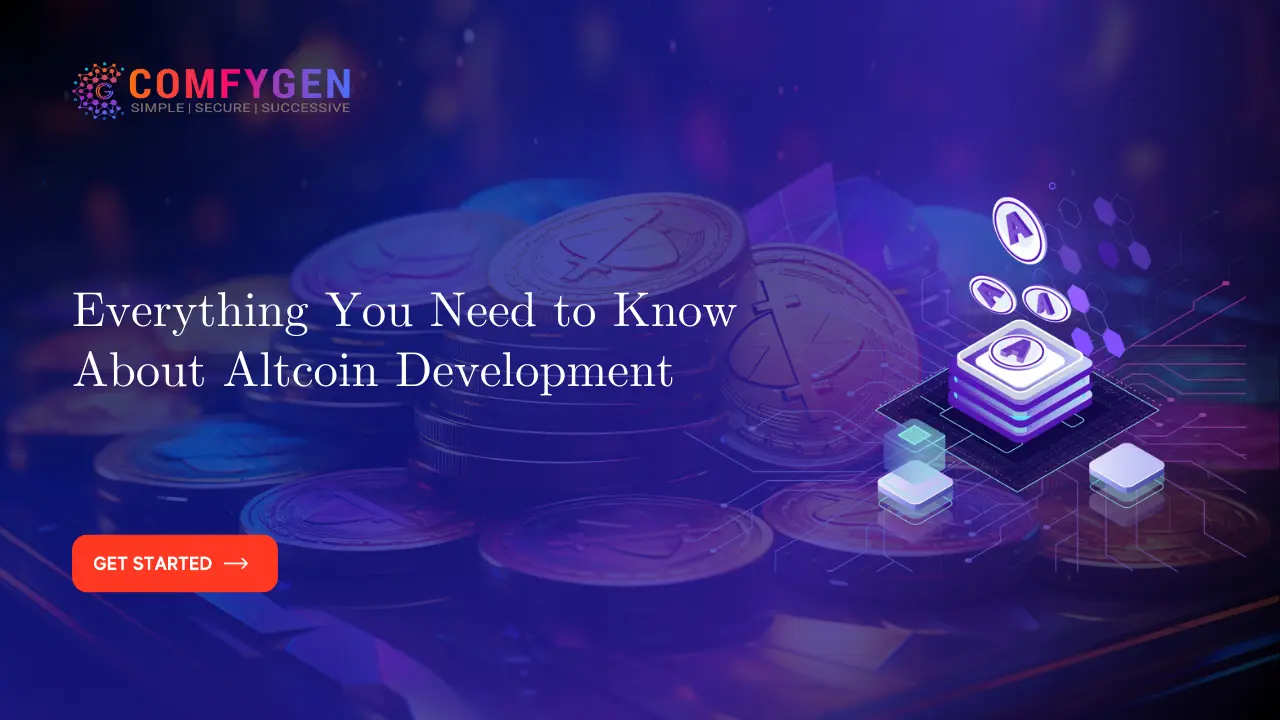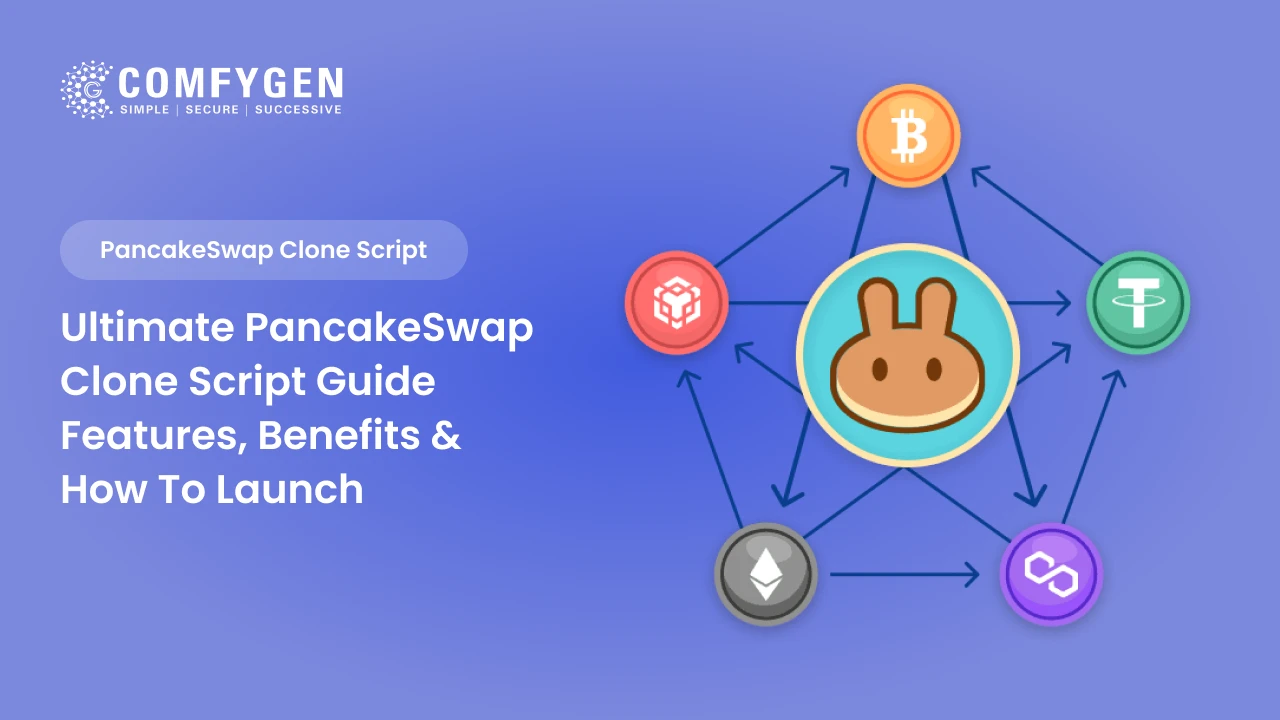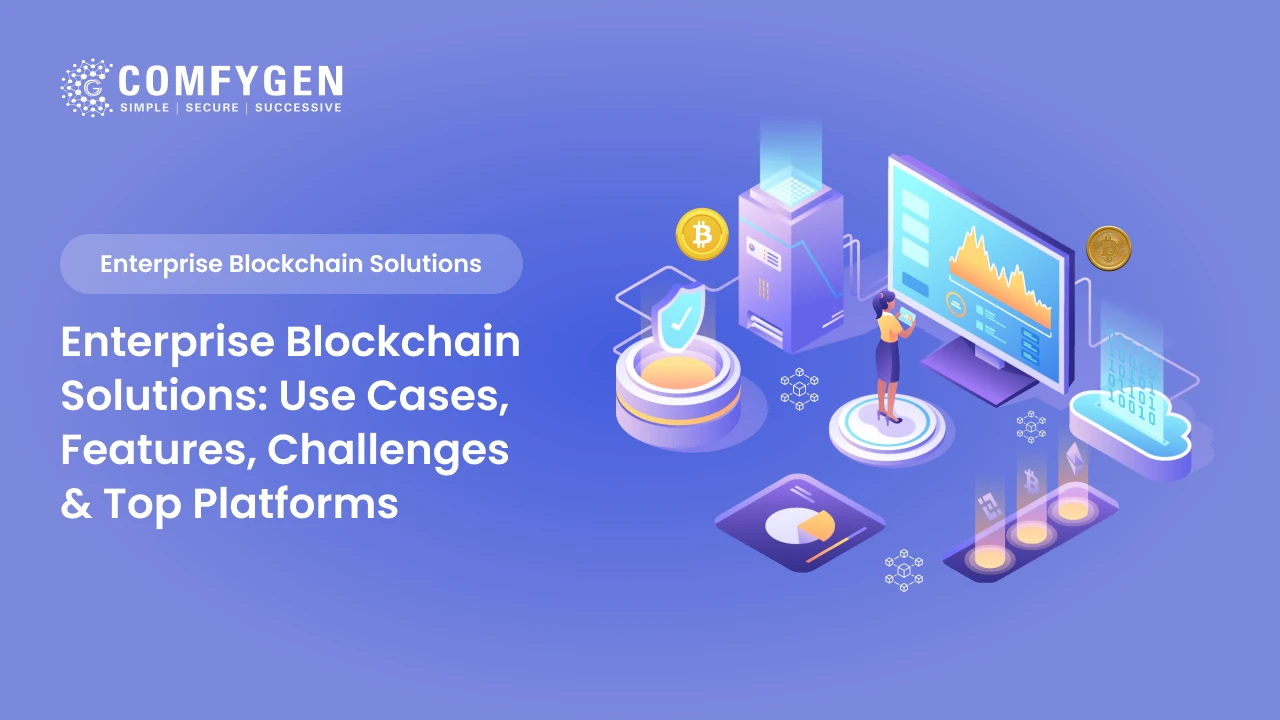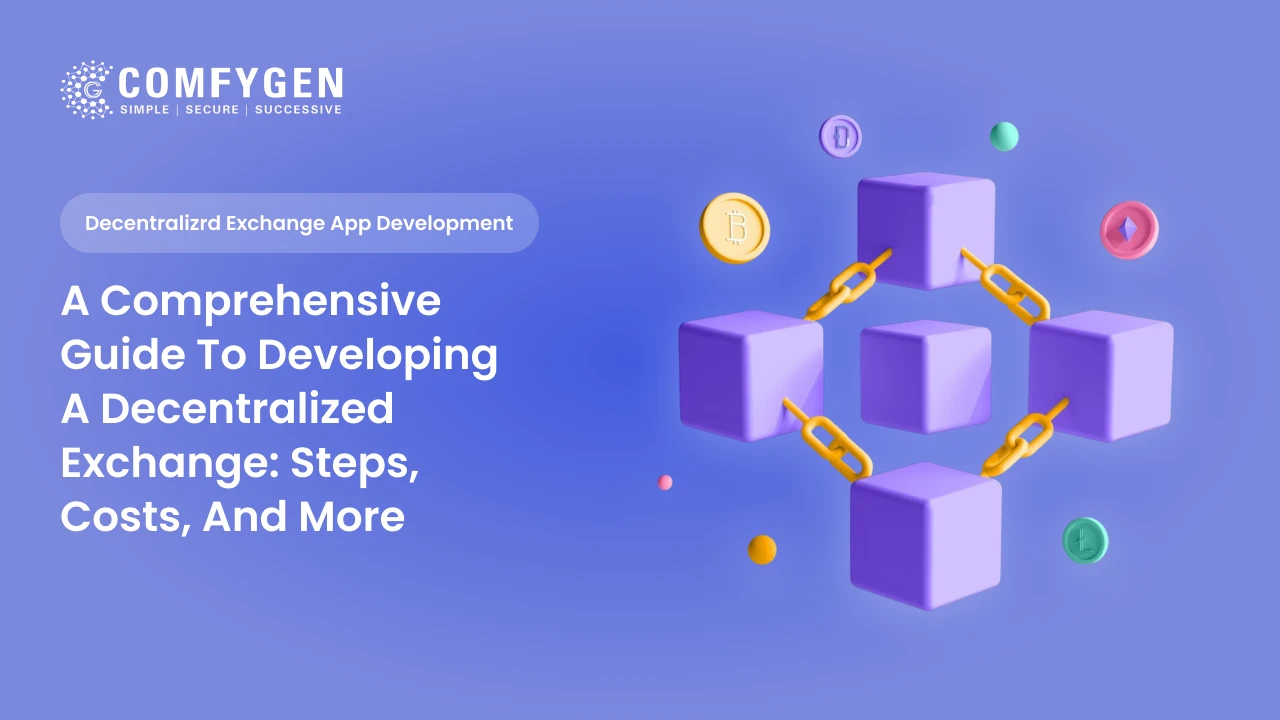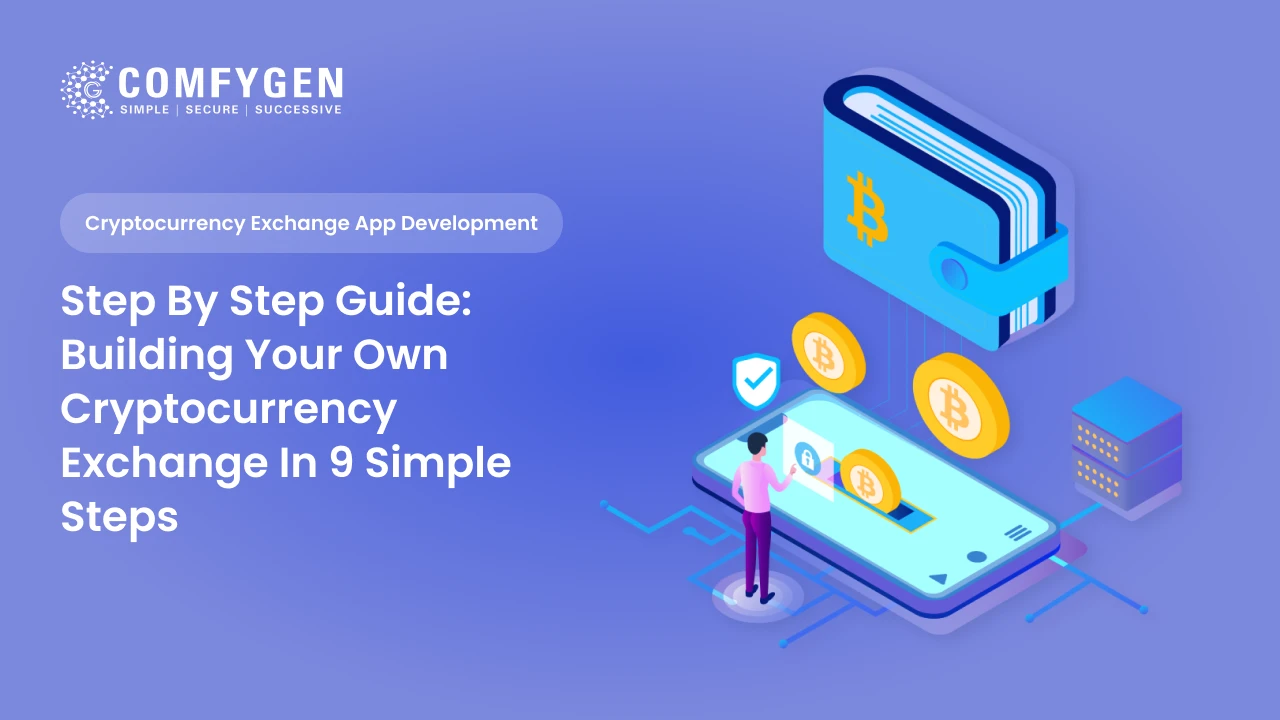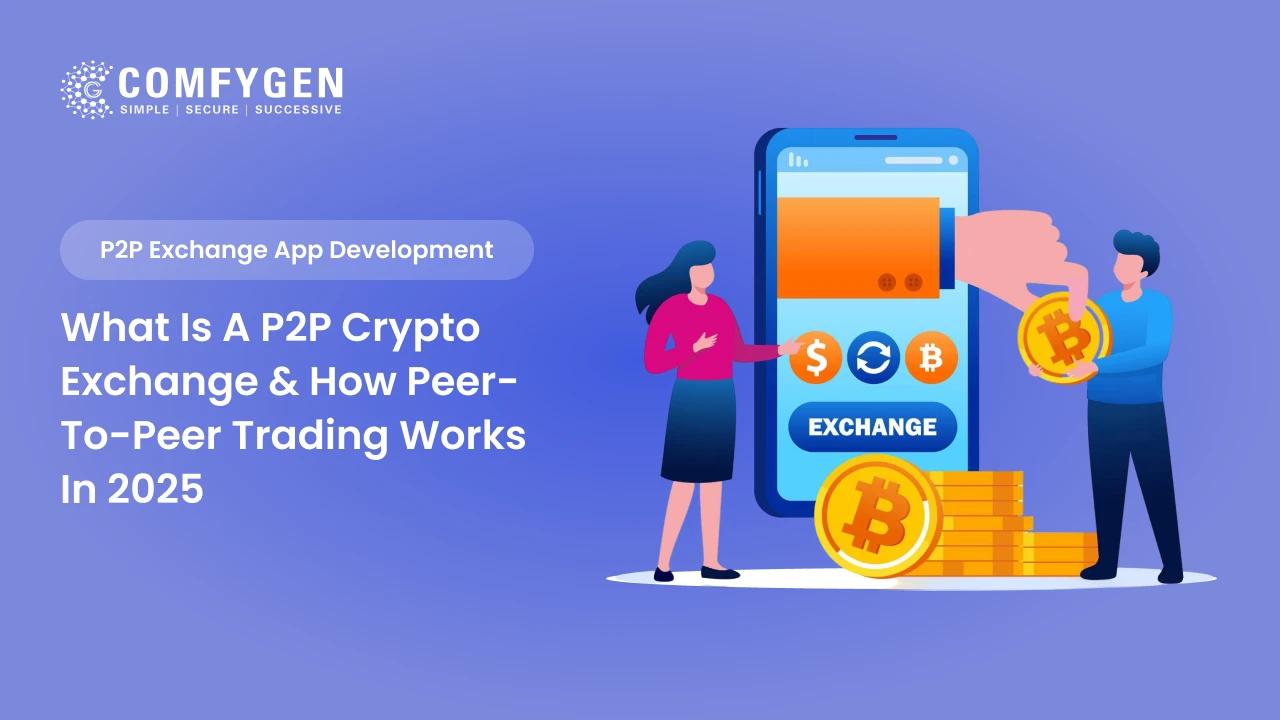Everything You Need to Know About Altcoin Development
Crypto development involves creating alternative cryptocurrencies to Bitcoin that offer unique features like privacy, scalability, or smart contracts. Altcoin development starts with a clear concept of a new coin from coding, testing and launching on the Ethereum blockchain development platform or Binance Smart Chain. Altcoin development must make sure security, scalability and community adoption through whitepapers, GitHub repositories and active community engagement. Altcoin development requires understanding blockchain technology, consensus mechanisms and cryptographic principles. Also, marketing strategies, partnerships and exchange listings are important for success. Continuous Altcoin development and innovation are important to stay competitive in the constant cryptocurrency market. The first crypto coin to come to the market was “Bitcoin”.
These are created to overcome the banking system or central authorities which have control over the user’s transactions. This, in turn starts many altcoins similar to Bitcoin into the market by qualifying different functionalities and purposes for each coin. Altcoin word makes “Alternative + coins”. According to the coin market, there are more than 9,000 altcoins introduced in the market. So, this rise of altcoins will be expected to impact future businesses and also many businessman have planned their business based on the blockchains by developing their own altcoins for future use.
What is Altcoin Development?
Altcoins are alternative cryptocurrencies to Bitcoin that represent an extensive formate of digital currencies developed to function from mediums of exchange that are supported by blockchain’s decentralized architecture and safeguarded by cryptography. This expansive category encompasses currencies part of Bitcoin’s protocol or aiming to overcome its limitations with projects ranging from Ethereum to Ripple, Bitcoin Cash, Bitcoin SV, Litecoin and more. While some like Ethereum, BNB, and XRP have achieved considerable popularity and value. The main part faces challenges like limited liquidity and value. Despite their diversity, many altcoins share foundational similarities with Bitcoin, often using its blockchain infrastructure while introducing unique features customized to specific use cases or preferences within the cryptocurrency ecosystem.
Also Read: How Altcoin Development is Driving Innovation in Cryptocurrency
Here are The Best Altcoins
| Coin | Market Capitalization | Current Price |
| Ethereum (ETH) | $385.74 | billion$3,171 |
| Tether (USDT) | $108.78 | billion$1.00 |
| Binance Coin (BNB) | $82.03 | billion$607.93 |
| Solana (SOL) | $69.15 | billion$154.26 |
LET’S CONNECT TO GROW YOUR BUSINESS
What is The Difference Between Coin and Altcoin?
Altcoins, also known as Alternative Coins represent cryptocurrencies of value definite from Bitcoin or Ethereum. The term “altcoin” surrounds any cryptocurrency apart from Bitcoin that retains value. While “altcoin” mainly provides to non-Bitcoin cryptocurrencies or those beyond Bitcoin and Ethereum. when discussing cryptocurrency development services within its native blockchain network. It is called simply as a “coin.
Coin:
- Coin provides to a digital currency that operates on its own independent blockchain.
- Coin examples include Bitcoin, Ethereum token and Litecoin.
- Coin typically provide a medium of exchange that store of value, or unit of account within their respective blockchain networks.
- Coin have their own unique features, consensus mechanisms and use cases but they are not dependent on any other blockchain development platform.
Altcoin:
- Altcoin word used to describe any cryptocurrency.
- Altcoin word makes “alternative” and “coin,” indicating these cryptocurrencies are alternatives to Bitcoin.
- Altcoins can include a different variety of digital assets. Every with its own blockchain or developed on existing blockchain development platforms like Ethereum blockchain development.
- Altcoin examples include Ethereum, Ripple, Cardano blockchain development and many others.
- Altcoins may provide various purposes like providing Altcoin development solutions to specific use cases that experimenting with different consensus mechanisms or offering increments to existing blockchain technologies.
Also Read: Complete Guide: Difference Between Crypto Coins and Crypto Tokens
Smart Contracts and Their Role in Altcoin Development
Smart contracts powered by blockchain technology are central in altcoin development services that revolutionizing the cryptocurrency landscape by automating agreement execution and workflow processes while removing mediator involvement and time delays. These self-executing smart contract development enforce terms exclusive that make sure efficiency, transparency and security across various altcoin ecosystems. In altcoin creation services, smart contracts qualify the DApp development that transforms industries like finance, supply chain management and gaming expanding utility and adoption. Using smart contracts, altcoins introduce unique features like DeFi protocols, NFT marketplace development and governance mechanisms that allow token holders to shape project direction democratically. Overall, smart contract development are basic to altcoin development services that authorize revolution and differentiation in an evolving cryptocurrency development company.
Read More: How to Choose the Right Altcoin Development Company?
Types of Altcoin
Altcoins surrounds a diverse range which including utility tokens like Meme coin, governance coin, stablecoins, utility tokens, security tokens, Non-Fungible token development. Every type serves different functions within the cryptocurrency ecosystem and providing alternatives to Bitcoin with definite features and use cases.
Meme Coins
Meme coins are cryptocurrencies that gain popularity primarily through viral memes, internet culture and social media preferably than fundamental technology or utility. These meme coins often feature humorous or meme-inspired branding and are driven by community engagement relatively than traditional factors like technological innovation or real-world use cases. Dogecoin is a prime example of a meme coin, initially developed as a joke but gaining a attractive following due to its internet meme culture.
Utility Tokens
Utility tokens are cryptocurrencies that provide access to specific products or altcoin development services within a particular ecosystem or altcoin development platform. Unlike cryptocurrencies like Bitcoin which primarily provides a medium of exchange or store of value. Utility tokens have a specific utility or function within their respective ecosystems. For example, Binance Coin is used to pay for trading fees on the Binance cryptocurrency exchange development and Ethereum’s Ether is used to fuel transactions and smart contracts on the Ethereum blockchain development.
Governance Tokens
Governance tokens are cryptocurrencies that allow support the right to participate in the decision-making process of decentralized organizations or protocols. Governance tokens support can propose and vote on changes to the protocol like software upgrades, parameter adjustments or allocation of funds from decentralized finances. Examples include MakerDAO’s MKR token which allows supporters to vote on proposals related to the stability of the Dai stablecoin and token which allows voting rights on changes to the Compound protocol.
Also Read: A Brief Guide to Altcoin App Development Cost, Features, and Benefits
Security Tokens
Security tokens are cryptocurrencies that represent ownership of real-world assets like value in a company, debt, or ownership of physical assets like real estate or material. These security tokens are subject to regulatory requirements as they typically represent investment contracts and are subject to securities laws in many authority. Security tokens provide benefits like fractional ownership, increased liquidity and automation of observation processes through blockchain development services.
Non-Fungible Tokens
Non-Fungible Tokens are unique digital assets that represent ownership or proof of authenticity of a specific item or piece of content like digital art, collectibles or in-game assets. Unlike fungible cryptocurrencies like Bitcoin or Ether. Every NFT is definite and cannot be exchanged on a one-to-one basis. NFT token development are often used to create scarcity and origin in digital content,that authorize creators to monetize their work and collectors to own and trade unique digital assets. Examples include CryptoKitties, NBA Top Shot and digital art pieces sold as NFT on platforms like OpenSea and Rarible.
Stablecoins
Altcoins, striving for innovation and differentiation from Bitcoin, offer diverse alternatives, whereas stablecoins provide a sanctuary of stability in the volatile cryptocurrency development company. While altcoins venture into new technological realms, stablecoins anchor their value to external assets like fiat currencies, particularly the U.S. dollar, ensuring a steadfast value amidst market fluctuations. Understanding these distinctions is essential for navigating the intricate cryptocurrency ecosystem effectively.
Benefits of Altcoin Development
Altcoin development offers several benefits that contribute to the growth and evolution of the cryptocurrency market:
- Market Innovation and Competition: Altcoin developers introduce fresh ideas, enhancements, and solutions, fostering innovation and healthy competition within the cryptocurrency space. This diversity encourages the development of new technologies and use cases, ultimately benefiting users and investors.
- Diversification of Investment Opportunities: The proliferation of altcoins provides investors with a wide range of investment opportunities beyond Bitcoin. Different altcoins offer varying features, functionalities, and growth potentials, allowing investors to diversify their portfolios and manage risk more effectively.
- Tailored Solutions for Specific Needs: Altcoins are often designed to address specific issues or challenges within the cryptocurrency ecosystem. For example, some altcoins focus on improving transaction speeds, enhancing security features, or enabling smart contracts. By catering to niche requirements, altcoins provide tailored solutions for users with specific needs.
- Experimentation with New Technologies: Altcoin development serves as a platform for experimenting with new technologies and protocols. Developers have the freedom to explore innovative concepts such as consensus mechanisms, privacy enhancements, and scalability solutions. This experimentation contributes to the overall advancement of blockchain technology.
- Community Engagement and Participation: Altcoin projects often foster vibrant communities of users, developers, and enthusiasts. These communities actively contribute to the development, promotion, and adoption of the altcoin through forums, social media platforms, and collaborative initiatives. Community engagement enhances network effects and strengthens the overall ecosystem.
- Global Accessibility and Financial Inclusion: Altcoins facilitate financial inclusion by providing access to decentralized financial services for individuals around the world. Unlike traditional banking systems, which may exclude certain populations or regions, altcoins offer borderless and permissionless access to financial resources, empowering underserved communities.
- Decentralization and Resilience: Altcoins contribute to the decentralization of the cryptocurrency ecosystem by diversifying the network of nodes and validators. This decentralization enhances network resilience and security, reducing the risk of central points of failure or manipulation. A diverse ecosystem of altcoins strengthens the overall resilience of the cryptocurrency market.
Hire Top Altcoin Development Company For Your Project!
Features of Altcoin Development
Blockchain Technology: Bitcoin, altcoins typically utilize blockchain technology, a decentralized and distributed ledger system that record transactions securely and transparently. Hire Altcoin developers in India may choose to modify existing blockchain protocols or create completely new ones to outfit their specific use cases and requirements.
Consensus Mechanisms: Custom Altcoin development involves selecting a consensus mechanism to validate and confirm transactions on the blockchain development. While PoW Blockchain Development is the most common consensus mechanism, other alternatives like PoS, Delegated Proof of Stake, and variations thereof may be chosen to address scalability, security and environmental concerns.
Tokenomics: Altcoin developers design token which including the distribution, supply and economics of their cryptocurrency development services. Factors like total token supply, extention rate, token distribution mechanisms and token utility within the ecosystem are carefully considered to make sure the acceptable and viability of the altcoin.
Privacy and Security: Altcoin developers may give priority features like privacy enhancements and security measures to protect against various threats depending on the project’s goals and target audience which including double-spending, 51% attacks and hacking incidents.
Scalability Solutions: Scalability is a critical consideration in altcoin development. Especially as blockchain networks grow in size and transaction volume. Developers may implement scaling solutions like layer 2 protocols, sharding, sidechains, or consensus algorithm improvements to increase transaction throughput and reduce latency.
Smart Contract Functionality: Altcoins aim to support DApp and smart contracts incorporate smart contract functionality into their protocols. Blockchain developers may choose to develop their own smart contract development platforms or using existing solutions like Ethereum to enable programmable and self-executing contracts on the blockchain development.
Interoperability and Cross-Chain Compatibility: To foster interoperability between different blockchain networks and facilitate seamless asset transfer and communication, altcoin developers may implement interoperability solutions. These solutions enable cross-chain transactions, data transfer, and interoperability between disparate blockchain ecosystems, promoting a more connected and interoperable blockchain landscape.
Community Engagement and Governance: Successful altcoin development often involves fostering a vibrant and engaged community around the project. Developers may implement governance mechanisms that enable community members to participate in decision-making processes, such as protocol upgrades, funding allocations, and ecosystem development initiatives, fostering a decentralized and participatory ecosystem.
Regulatory Compliance: Altcoin developers must consider regulatory compliance when designing their cryptocurrency and ecosystem. Depending on the jurisdiction and the nature of the project, developers may need to adhere to legal and regulatory requirements, such as Know Your Customer (KYC) and Anti-Money Laundering (AML) regulations, securities laws, and tax obligations.
Innovation and Differentiation: Altcoin development involves innovation and differentiation to distinguish the project from existing cryptocurrencies and address specific market needs or pain points. Developers may introduce novel features, use cases, or technological advancements to attract users, investors, and developers to their ecosystem, fostering growth and adoption over time.
Read More: Cryptocurrency Token Development | A Simple Guide To Launch A Crypto Token
How to Develop The Best Altcoin
When developing your own altcoin should be a profitable altcoin developer in the crypto exchange development field who provides you a deep understanding of the crypto market and technical analysis variation. To develop the best altcoin creation. It’s important to focus on identifying a unique value proposition and addressing specific market needs while making sure a strong and secure blockchain protocol. This requires careful design of consensus mechanisms, tokens and scalability blockchain development solutions alongside attractive features like privacy enhancements and interoperability. Also, encouraging community engagement, accepting to regulatory observation and continuously repeating based on feedback are important for long-term success and viable growth in the competitive altcoin development company in India.
How Much Does Cost to Develop The Best Altocin?
The cost of developing a cryptocurrency that includes the best altcoin creation services in India reaches a big spectrum, ranging from $5k to $70k or even more than possible on the project’s intricacy and requirements. Factors affect the cost surrounding development time and the technology employed in the process. A high-quality altcoin project typically collects expenses that cover blockchain development, smart contract development, security audits, regulatory conformity, marketing and continuous maintenance with evaluations ranging from tens of thousands to hundreds of thousands of dollars. It’s compulsory to conduct whole research and seek guidance from experienced altcoin developers to secure an exact appraisal customized to your altcoin development project’s specific needs and financial limitations.
Create your Cryptocurrency
How Altcoins are Different from Bitcoin?
Cryptocurrencies including altcoins are reshaping transactional standards by providing more secure choices to Bitcoin which has looked out for weaknesses to fraud and scams. While altcoins are relatively new and prone to price volatility. They provide clear advantages over Bitcoin through innovative technological features customized use cases and varied theory. Altcoins often introduce enhancements like increased privacy and smart contract functionality providing to opportunities markets and altcoin development industries not fully inscribed by Bitcoin. Also, altcoins display different development processes, governance models and community dynamics, contributing to a rich and dynamic cryptocurrency landscape that extends beyond Bitcoin’s original vision. Despite their differences, both Bitcoin and altcoins collectively drive forward the development of decentralized digital currencies that offer users a spectrum of options for financial transactions and innovation.
Read More: How Much Does it Really Cost to Create an Altcoin? Find Out Here!
Why Choose Comfygen for Altcoin Development?
Choosing Comfygen for altcoin development provides several captivation advantages. Comfygen provides full support throughout the altcoin development process with the best blockchain developers team and blockchain development industry experts from conceptualization to launch and beyond. Comfygen gives priority to cutting-edge technology and innovative solutions that make sure that your altcoin stands out in the competitive cryptocurrency landscape. Also, Comfygen’s dedication to security, scalability, and regulatory compliance guarantees a strong and reliable altcoin ecosystem. Choosing Comfygen for altcoin development makes sure a perfect and rewarding journey toward realizing your cryptocurrency vision with a proven track record of successful projects and satisfied clients.
Quick Contact Us :
WhatsApp: +91 958-786-7258
Telegram: @comfygen
Email: [email protected]
Final Words
Starting into altcoin development discover a dynamic and complicated journey within the cryptocurrency development field. Understanding the difficulties of altcoin development involves navigating through various elements including technological innovations, market dynamics and community engagement. From identifying unique value propositions to encouraging regulatory compliance and security, altcoin development demands careful planning, innovation and adaptability. Furthermore, the evolving landscape of altcoins presents both opportunities and challenges that require continuous learning and refinement. With a full understanding of altcoin development company and individuals can start on a transformative journey to contribute to the ever-expanding universe of decentralized digital currencies that provide innovation and shape the future of finance.

Mr. Saddam Husen, (CTO)
Mr. Saddam Husen, CTO at Comfygen, is a renowned Blockchain expert and IT consultant with extensive experience in blockchain development, crypto wallets, DeFi, ICOs, and smart contracts. Passionate about digital transformation, he helps businesses harness blockchain technology’s potential, driving innovation and enhancing IT infrastructure for global success.
Based on Interest
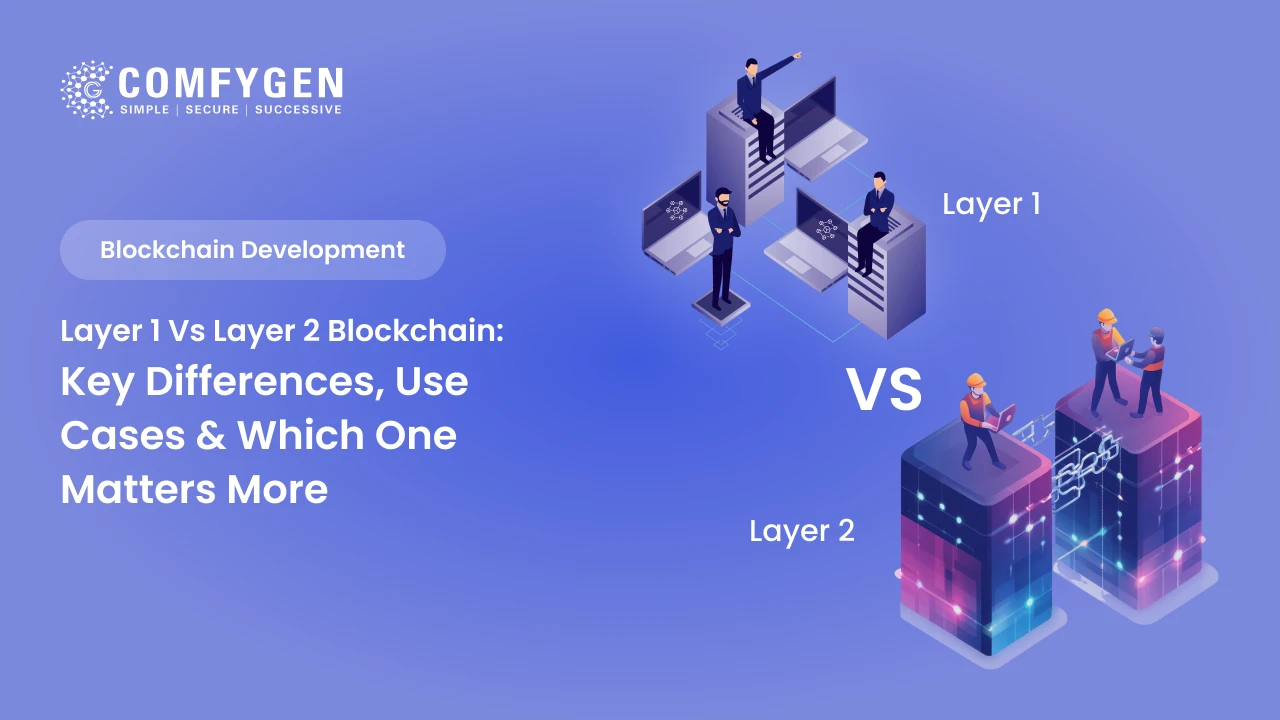
Layer 1 vs Layer 2 Blockchain: Key Differences, Use Cases & Which One Matters More in 2025
Introduction Blockchain technology, once the exclusive domain of cryptocurrencies, has now evolved into a robust tool for various industries, including finance, healthcare,…

